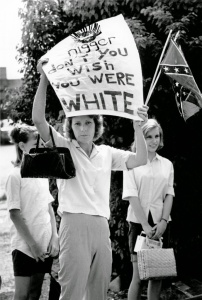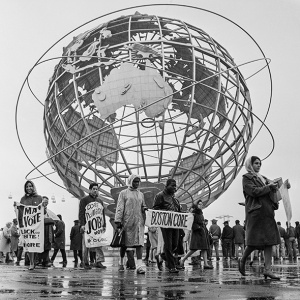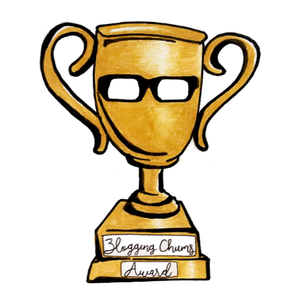April – This Month In Black American History
By Guest Blogger Yahtzeebutterfly
April 1, 1949 – Spoken-word, jazz/blues poet Gil Scott-Heron was born in Chicago, Illinois
See Xena’s excellent article, The Gift of Gil Scott Heron – Seeing the Present In The Past.
April 2, 1939 – Birth of singer and songwriter Marvin Gaye in Washington, D.C.
April 4, 1928 – Poet and author Maya Angelou was born in St. Louis, Missouri.
In case you missed her moving tribute to Nelson Mandela, here it is:
April 4, 1968 – Martin Luther King was assassinated.
Every time another anniversary of Martin Luther King’s untimely death comes around, there is an echo in my mind of him speaking about how he might not get to the “promised land” of brotherhood, equality, and social justice but that he had seen “the promised land” with all of its beauty from the mountaintop overlooking it. Today, we are still not there. It is a land that my heart yearns for. It is a land that requires all of our fellow citizens’ hearts to yearn for before our arrival there is possible. Hearts need to change and feel the qualities of that “promised land.” It is actually a promise that we must give to each other before arrival is ever possible.
April 4, 1967 – Exactly one year before his death, Martin Luther King delivered his “Beyond Vietnam” speech.
April 5, 1856 – Educator and author Booker T. Washington was born in Virginia as a slave.
He became a leader in the African American community, the first president of the Tuskegee Industrial Institute in Alabama, and a advisor to many U.S. presidents.
April 7, 1965 saw the beginning of many civil rights marches (which continued through the summer months) in Bogalusa, Louisiana for voting rights, for inclusion on political committees, for equal police protection, for an end to racial segregation and an end to exclusion from public accommodations including restaurants, for equal job opportunity, and for an end to discriminatory hiring practices at the Crown-Zellerbach paper mill which was the major employer in town.
At one of these marches an ugly-hearted white woman held this sign:

This Bogalusa Movement, which took place in a town with such a high concentration of KKK members that some have labeled it “Klantown USA,” was met with white violence including beatings by mobs as well as by police, shootings, cross burnings, spraying with fire hoses, setting of fires, and other forms of intimidation. Because of the dangerous violence against the Black protest community, a chapter of the self-defense group of Blacks called “The Deacons for Defense” was formed in Bogalusa. For an understanding of this self-defense organization see this three minute video:
See Seth Hague’s paper for an in-depth history the Bogalusa Movement.
April 7, 1915 – Birth of Billie Holiday, the talented blues & jazz singer and songwriter well known for the songs ”GOD Bless The Child” and “Strange Fruit.”
Ms. Holiday captures the horror of lynching as she sings “Strange Fruit” with such heartbreaking emotion that there is no escape for me. The chilling atrocities committed by the beastly mobs is related in her every pause, emphasis, change of volume and the tone of her voice. Listening to it sears my being as I consider the many modern-day killings and beatings of innocent, unarmed Black victims. The lyrics of the poem, written and published by teacher Abel Mere in 1937, were first sung and recorded by Billie Holiday in 1939. The song has been sung by many artists, but for me, her version here leaves me haunted and deeply shaken more than I can even express through words:
People, from Ida B. Wells beginning in the 1890s to civil rights organizations in the 1900s to Albert Einstein in the 1940s marched, spoke out, wrote letters and petitioned the Federal Government to enact anti-lynching legislation. Despite the lobbying of Congress by seven presidents for anti-lynching legislation and despite three anti-lynching bills passing the House of Representatives, the bills were always crushed by the U.S. Senate.
Finally, in 2005, with the support of 75% or 80% (noting sadly that it was not 100%) of the U.S. Senate, an anti-lynching apology resolution was passed. Writing for the Washington Post, Avis Thomas-Lester informed readers that “In passing the measure, the senators in essence admitted that their predecessors’ failures to act had helped perpetuate a horror that took the lives of more than 4,700 people from 1882 to 1968, most of them black men.”
After the Anti-Lynching Apology Resolution was passed, senators Mary Landrieu, John Kerry, George Allen, and others who were part of the moving force to bring about and pass the resolution held this press conference where also present were many family members of lynching victims as well as an elderly man who had escaped being lynched the day his two brothers were lynched. Here is the video of that press conference:
In 2005, then a Senator, Barack Obama delivered a speech supporting the Anti-Lynching Apology Resolution:
April 9, 1866 – The Civil Rights Act of 1866 was passed by Congress over President Andrew Johnson’s veto.
April 9, 1898 – Singer and actor Paul Robeson was born in Princeton, New Jersey.
April 10, 1947 – Jackie Robinson signs with the Brooklyn Dodgers becoming the first African American to play Major League Baseball.
April 11, 1899 – Birth of Chemist Percy Lavon Julian in Montgomery, Alabama.
According to Wikipedia:
“ Percy Lavon Julian was an African American research chemist and a pioneer in the chemical synthesis of medicinal drugs from plants. He was the first to synthesize the natural product physostigmine, and a pioneer in the industrial large-scale chemical synthesis of the human hormones progesterone and testosterone from plant sterols such as stigmasterol and sitosterol. His work laid the foundation for the steroid drug industry’s production of cortisone, other corticosteroids, and birth control pills.”
April 11 1968 – President Johnson signs the Civil Rights Act of 1968, prohibiting discrimination in the sale, rental, and financing of housing. According to Wikipedia,
“The law is passed following a series of Open Housing campaigns throughout the urban North, the most significant being the 1966 Chicago Open Housing Movement and the organized events in Milwaukee during 1967–68. In both cities, angry white mobs had attacked nonviolent protesters.”
April 13, 1946 – R&B singer Al Green was born this day in Forrest City, Arkansas.
April 15, 1889 – Birth of A. Philip Randolph, labor leader, president of the Sleeping Car Porters union, and civil rights advocate who helped organize the 1963 March on Washington.
(Two minute documentary video,“A Philip Randolph: For Jobs and Freedom”)
April 18 – Birth of James McCune Smith, who the first African American to receive a medical degree. He was very active in the abolition of slavery movement.
(Video “Danny Glover as James McCune Smith”)
April 21, 1924 – Gospel singer Clara Ward was born in Philadelphia, Pennsylvania.
April 22, 1964 – Civil Rights protest by members of CORE takes place at the 1964 World’s Fair in New York:

CORE picketers march in the shadow of the Unisphere at the 1964 World’s Fair.
Civil Rights demonstrators picketed in front of the entrance to the fair as well as at the entrances to the pavilions. During President Lyndon B. Johnson’s opening address, protestors shouted, “Jim Crow Must Go!” and “Freedom Now!” The Congress for Racial Equality planned the demonstration knowing that the media would be present and hoped their message would be carried nationally to the American public.
At the World’s Fair, CORE leader James Farmer proclaimed:
“For every new car that is shown at the World’s Fair, we will submit a cattle prod. For every piece of bright chrome that is on display, we will show the charred remains of an Alabama church. And for the grand and great steel Unisphere, we’ll submit our bodies from all over the country as witnesses against the Northern ghetto and Southern brutality.” James Farmer with others blocked the door to the New York City pavilion, saying it was a “symbolic act, in the same way…that Negroes have been blocked from good jobs, houses and schools in the city.”
April 23, 1956 – The U.S. Supreme Court affirms the ruling of a federal appellate court which struck down the law of segregated seating on buses.
April 23, 1856 – Inventor, Granville T. Woods was born in Columbus, Ohio.
Mr. Woods had more than 50 patents in his name. Wikipedia informs that “In 1885, Woods patented an apparatus which was a combination of a telephone and a telegraph. The device, which he called ‘telegraphony’, would allow a telegraph station to send voice and telegraph messages over a single wire. He sold the rights to this device to the American Bell Telephone Company. In 1887, he patented the Synchronous Multiplex Railway Telegraph which allowed communications between train stations from moving trains, a technology pioneered by Lucius Phelps in 1884.”
(”GTW-Granville T. Woods Mini-Documentary”)
April 26, 1886 – Legendary blues singer Gertrude “Ma” Raney was born in Columbus, Ohio.
April 26, 1948 – Electrical engineer and inventor Jesse Russell was born and grew up in Nashville, Tennessee.
According to Wikipedia:
“Jesse Eugene Russell is an American inventor. Trained as an electrical engineer at Tennessee State University and Stanford University… [his] innovations in wireless communication systems, architectures and technology related to radio access networks, end-user devices and in-building wireless communication systems have fundamentally changed the wireless communication industry. Known for his patented invention of the digital cellular base station, that enabled new digital services for cellular mobile users, Russell continues to innovate in the emerging next generation broadband wireless communication technologies, products, networks, and services as well as “Mobile Cloud Computing” which are shaping the forefront of the 4G Communication Industry.”
Posted on 04/04/2016, in Black History Month, civil rights, research and tagged April, Black American History. Bookmark the permalink. 69 Comments.







































ANNOUNCEMENT
Yahtzeebutterfly plans on posting a This Month in Black American History on a monthly basis. Her research is outstanding and I thank her for giving of her time.
LikeLiked by 2 people
Xena,
I appreciate being able to send you my April post and for you placing it on your blog. Thank you very much. 🙂
LikeLiked by 1 person
Artist Charles Wilbert White was born on April 2, 1918in Chicago, Illinois.
From Wikipedia: “White’s best known work is The Contribution of the Negro to American Democracy, a mural at Hampton University depicting a number of notable blacks including Denmark Vesey, Nat Turner, Peter Salem, George Washington Carver, Harriet Tubman, Frederick Douglass, and Marian Anderson.”
A short video documentary on Charles White’s life and works:
LikeLike
On this day (April 4) forty eight years ago, an assassin’s bullet took the life of Martin Luther King.
King’s words (excerpt) from the “Beyond Vietnam” speech, which he delivered exactly one year to the day before his death, had a great impact:
LikeLiked by 2 people
https://twitter.com/MrNegroMilitant/status/717150347907575808
LikeLiked by 1 person
Jane Elliot conducted her first “Blue eyes–Brown eyes” exercise the day after Rev. Martin Luther King, Jr. was assassinated.
http://www.todayifoundout.com/index.php/2013/07/jane-elliot-and-the-blue-eyed-children-experiment/
LikeLike
On this day in 1839 (April 5, 1839) U.S. Congressman Robert Smalls was born enslaved to a master named Henry Mckee in Beaufort, South Carolina. Mckee raised money by hiring out Smalls when Robert Smalls was twelve. According to Wikipedia “He began in a hotel, then became a lamplighter on Charleston’s streets. In his teen years, his love of the sea led him to work on the docks and wharves of Charleston. Smalls became a stevedore (dockworker), a rigger, a sail maker, and eventually worked his way up to being a wheelman (more or less a pilot, though slaves would not be called by that title). He became very knowledgeable about Charleston harbor.”
He would succeed in 1862 to escape slavery with his family by piloting a small Confederate transport ship past Confederate forts guarding Charleston Harbor to the Union ships blockading the harbor:
After the Civil War, Robert Smalls went on to become a member of the South Carolina legislature and, later, a U.S. congressman. Here is a video trailer to a documentary on his life:
LikeLike
With the Space Shuttle Discovery launch to the International Space Station on this day in 2010 (April 5, 2010) Stephanie Wilson began her third spaceflight as a mission specialist.
LikeLike
So much hear, thank you YB!
LikeLiked by 1 person
here, even! D’oh
LikeLike
yw Mindy. 🙂
I forgot the expression D’oh… we used to use it all the time when we were kids.

LikeLiked by 1 person
And Still I Rise
Maya Angelou
You may write me down in history
With your bitter, twisted lies,
You may tread me in the very dirt
But still, like dust, I’ll rise.
Does my sassiness upset you?
Why are you beset with gloom?
‘Cause I walk like I’ve got oil wells
Pumping in my living room.
Just like moons and like suns,
With the certainty of tides,
Just like hopes springing high,
Still I’ll rise.
Did you want to see me broken?
Bowed head and lowered eyes?
Shoulders falling down like teardrops.
Weakened by my soulful cries.
Does my haughtiness offend you?
Don’t you take it awful hard
‘Cause I laugh like I’ve got gold mines
Diggin’ in my own back yard.
You may shoot me with your words,
You may cut me with your eyes,
You may kill me with your hatefulness,
But still, like air, I’ll rise.
Does my sexiness upset you?
Does it come as a surprise
That I dance like I’ve got diamonds
At the meeting of my thighs?
Out of the huts of history’s shame
I rise
Up from a past that’s rooted in pain
I rise
I’m a black ocean, leaping and wide,
Welling and swelling I bear in the tide.
Leaving behind nights of terror and fear
I rise
Into a daybreak that’s wondrously clear
I rise
Bringing the gifts that my ancestors gave,
I am the dream and the hope of the slave.
I rise
I rise
I rise.
LikeLiked by 4 people
Happy Birthday Pharrell Williams!
LikeLiked by 2 people
LikeLiked by 1 person
yahtzeebutterfly,
Thanks for all your hard work on this!!!!
LikeLiked by 1 person
🙂 yw, Butterflydreamer. Great to have a chance to say “hi” to you here. *hugs*
LikeLiked by 1 person
On April 6, 1909 explorer Matthew Henson arrived at the North Pole with Robert Peary’s expedition.
LikeLiked by 2 people
Pianist Dorothy Donegan was born April 6, 1922 in Chicago, Illinois. Wikipedia informs us that she was a “classically trained jazz pianist primarily known for performing in the stride piano and boogie-woogie style. She also played bebop, swing jazz, and classical music.”
Video (“Dorothy Donegan (Piano) & Cab Calloway & His Band”) :
LikeLike
I don’t comment a lot, unless I have ‘really’, something to say,.. .
let’s all be one, quit being of not, because we all came from the same father.. .
Color.. .?? Really.. .???
and Yes, probably, off point, but your Blog brings to mind,
Our Souls.. .
LikeLike
Thanks for dropping by to comment, “A Curious Mind”.
Yes, hearts need to change.
We also need to know our country’s historical failings so that we understand why we are where we are and what we need to change in order to repair the damage caused by past events. In addition, our schools’ history textbooks need to be well-rounded so that ALL children can take pride in their ancestors’ accomplishments.
In our white-structured society Black history was neglected in the history books. It was even revised to present a false history. (A friend of mine told me that her history textbook in the 1940s informed students that Black slaves were happy and content.) After Carter Woodson was told that Blacks “had no history” by a professor, he set out to research and publish African American history which became his life’s work.
Excerpt from http://www.historyisaweapon.com/defcon1/misedne.html
When I read your comment Color.. .?? Really.. .???” I have to respond with “Yes.”
Here are some things I have read that have helped me:
and
LikeLiked by 1 person
LikeLiked by 1 person
LikeLike
I read yesterday where the man who called the police on John Crawford is being charged
http://www.daytondailynews.com/news/news/crime-law/judge-finds-probable-cause-for-911-caller-in-crawf/nqzq4/
LikeLike
Hey Mindyme! I’m writing a post about it now. Great minds think alike. 🙂
LikeLike
http://postalmuseum.si.edu/collections/object-spotlight/btw-stamp.html
LikeLike
Civil rights activist William Monroe Trotter, born on April 7, 1872, was a real estate businessman and the founder of the Boston Guardian an African American newspaper.
I found a great site (“Trotter Multicultural Center”) that provides a timeline of his activism life.
Here are two entries from that site:
This photo shows the office front of the newspaper:

LikeLike
Walter Scott was fatally shot in the back one year ago (April 8, 2015) by Ofc. Slager.
Slager’s trial is scheduled for October 31 this year.
LikeLike
The Student Nonviolent Coordinating Committee (SNCC) was founded on April 8, 1960.
LikeLike
Salute!!!!! Phenomenal post, and posts in the comments.’Well done. There was so much I did not know. Thanks for the lesson 🙂
LikeLike
Thanks for your kind and encouraging words, Virgobeauty.
I just wish I had known when I taught fifth and sixth grade students what I know today of the history of the African American experience (and, of course, I am still learning).
I hope colleges will continue to keep their Black studies departments strong. I was concerned about cutbacks when I recently read a book titled ”Dude, Where’s My Black Studies Department?” In this book, author Cecil Brown points out that
LikeLiked by 1 person
Oh my. As we both learn, we shall continue to teach others. I, too, hope that the institutions continue to advise the minds that are before them (young and old). Thanks for putting me on to a new book as well.
LikeLiked by 1 person
” As we both learn, we shall continue to teach others.”
Yes! 🙂
LikeLiked by 1 person
Happy Birthday to you, Paule Marshall 🙂
After listening to this video where you discuss your memoir Triangular Road, I look forward to reading it :
From internet Encyclopedia Britannica :
Paule Marshall, original name Valenza Pauline Burke (born April 9, 1929, Brooklyn, New York, U.S.), American novelist whose works emphasized a need for black Americans to reclaim their African heritage.
Her autobiographical first novel, “Brown Girl, Brownstones”(1959), tells of the American daughter of Barbadian parents who travels to their homeland as an adult. The book was critically acclaimed for its acute rendition of dialogue, gaining widespread recognition when it was reprinted in 1981.
“Soul Clap Hands and Sing”, a 1961 collection of four novellas, presents four aging men who come to terms with their earlier refusal to affirm lasting values… “The Chosen Place, the Timeless People” (1969) is set on a fictional Caribbean island and concerns a philanthropic attempt to modernize an impoverished and oppressed society.
Marshall’s most eloquent statement of her belief in African Americans’ need to rediscover their heritage was “Praisesong for the Widow,” a highly regarded 1983 novel that established her reputation as a major writer. Its protagonist, Avatara (Avey) Johnson, a middle-class woman, undergoes a spiritual rebirth on the island of Grenada.
LikeLike
In the above, all of the words that followed “From internet Encyclopedia Britannica ” should have been in italics.
(Xena, if you have time, would you correct that for me?)
LikeLike
Blues singer and guitarist Mance Lipscomb was born April 9, 1895 in Navasota, Texas.
LikeLike
Classical composer Florence Price was born in Little Rock, Arkansas on April 9, 1887.
She attended the New England Conservatory of Music and also Chicago’s Conservatory of Music. According to Wikipedia:
Video (“Mississippi Suite-Florence Price”) :
Video (Florence Price “Night” performed by Yolanda Rhodes & Deanne Tucker) :
LikeLike
Benjamin Mays eulogized at Martin Luther King’s funeral (April 9, 1968) :
Video – Aretha Franklin sings Precious Lord at Martin Luther King Funeral:
LikeLike
Thanks to contributor Lucinda Mennenga on the Blackpast dot-org page I was able to learn for the first time about the life and contributions of James Monroe Whitfield.
(For her full article which includes a portrait of Whitfield see http://www.blackpast.org/aah/whitfield-james-monroe-1822-1871 )
Born on April 10, 1822 in New Hampshire John Monroe Whitfield, a barber, was a passionate abolitionist and poet who contributed poems to Frederick Douglas’ newspaper The North Star and to William Lloyd Garrison’s abolitionist newspaper The Liberator. Later in life, when he lived in the Northwest and in San Francisco, Whitfield wrote to local newspapers supporting civil rights for African Americans.
Excerpt from “America” by John Monroe Whitfield:
“Prayer of the Oppressed”
by John Monroe Whitfield
LikeLike
Additional biographical information about James Monroe Whitfiled from page 475 of ”African American Authors, 1745-1945: Bio-bibliographical Critical Sourcebook” :
LikeLike
On April 11, 1903 John Clarke was convicted of “gaming” and was sentenced into the brutal convict lease system in Alabama.
Excerpt from Douglas Blackmon’s 2001 article titled “From Alabama’s Past, Capitalism Teamed With Racism to Create Cruel Partnership”:
http://www.wsj.com/articles/SB995228253461746936
If you wish to know more of what Douglas Blackmon uncovered about the convict lease system, see this link on his book “Slavery By Another Name” :
http://www.slaverybyanothername.com
LikeLike
Today (April 12, 2016) is the anniversary of Freddie Gray’s death.
LikeLike
Correction:
April 12, 2015 was the day that Freddie Gray received his injuries during his arrest that caused his death a week later on April 19, 2015.
LikeLike
April 12, 1863 – Lucy Hughes Brown, the first African-American woman physician in South Carolina, was born in Mebane, North Carolina.
LikeLike
April 13, 1854 – Birth of educator Lucy Craft Laney who founded Haines Institute for black students in Augusta, Georgia and was its principal for fifty years.
LikeLike
April 13, 1964 – Sidney Poitier wins the the Academy’s Best Actor award for his role in Lilies of the Field.”
https://youtu.be/qCzTyxXPy1o&rel=0
LikeLike
April 14, 1775 – Founding of the Society for the “Relief of Free Negroes Unlawfully Held in Bondage” (renamed in 1784 to the “Pennsylvania Society for Promoting the Abolition of Slavery and for the Relief of Free Negroes Unlawfully Held in Bondage, “better known as the “Pennsylvania Abolition Society.”)
From Wikipedia:
Great video about this society:
LikeLike
April 15, 1915 – Birth of graphic artist and sculptor Elizabeth Catlett in Washington, D.C.
LikeLike
April 15, 1926 – Architect Norma Merrick Sklarek was born in Harlem, New York City.
From Wikipedia :
LikeLike
April 16, 1963 – Martin Luther King wrote his Letter from Birmingham City Jail.
Link to text of letter:
https://www.africa.upenn.edu/Articles_Gen/Letter_Birmingham.html
Excerpts from letter:
LikeLike
April 17, 1914 – Birth of Dovey Johnson Roundtree in Charlotte, North Carolina.
From Wikipedia:
LikeLike
“On 18 April 1959, King, along with several other civil rights leaders, including Daisy Bates, Harry Belafonte, A. Philip Randolph, Jackie Robinson, and Roy Wilkins, spoke before 26,000 black high school and college students who had come to the nation’s capital to demonstrate their support for the 1954 Supreme Court decision against racial segregation in the nation’s public schools.”
http://dcstatehoodyeswecan.org/j/index.php?option=com_content&view=article&id=320:april-18-1959-youth-march-for-integrated-schools&catid=100:mlk-dc&Itemid=80
LikeLike
April 18, 1941 – NYC bus companies hired two hundred Black workers after a four week boycott led by Adam Clayton Powell, Jr. Of those two hundred hired there were about one hundred drivers and seventy maintenance workers.
https://legallegacy.files.wordpress.com/2015/03/timthumb-php.jpeg?w=616&h=300
Photo of Adam Clayton Powell speaking during the boycott.
LikeLike
April 19, 1841 – Birth of Pierre Caliste Landre, the first African American to become a mayor in the U.S.
From Wikipedia:
LikeLike
April 20, 1871 – President Ulysses S. Grant signed the Third Force Act (also known as the Ku Klux Klan Act).
1871-civil-rights-act-passed-by-republicans.jpg
LikeLike
LikeLike
April 20, 1971 The U.S. Supreme Court, in the case of Swann v. Charlotte-Mecklenburg Board of Education upheld the use of busing to achieve racial desegregation in schools.
https://www.law.cornell.edu/supremecourt/text/402/1
LikeLike
Yesterday ( April 20, 2016 ) the U.S. Treasury Department announced that the portrait of Harriet Tubman will be on the new $20 bill :
LikeLike
From the minutes of the April 21-23,1961 SNCC meeting at Johnson C. Smith University, Charlotte, North Carolina :
You can read the full report of the meeting here:
Click to access 6104_sncc_min.pdf
LikeLike
April 22, 1892 – Birth of civil rights activist Vernon Johns in Darlington Heights, Virginia.
From Wikipedia:
From the movie The Vernon Johns Story :
LikeLike
23, 1951 Student walkout strike because of overcrowding and inadequate facilities at Moton High School, which was the Black high school in Prince Edward County, Virginia.
Excerpt from article linked below:
http://www.motonmuseum.org/motonstrike2014/
LikeLike
April 23, 1933 – Birth of Annie J. Easley in Birmingham, Alabama
From Wikipedia:
LikeLiked by 1 person
April 24, 1960 – “Bloody Sunday” in Biloxi, Mississippi occurred when a White mob viciously attacked 125 African Americans who were taking part in a peaceful wade-in to protest the segregation 26-mile-shoreline along the Gulf of Mexico.
Dr. Gilbert Mason who led the wade-in campaign described the horror of that day on page 68 of his book Beaches, Blood, and Ballots :
In his book Dr. Gilbert wrote about how he told an officer who was going to arrest him that he needed to tend to the injured at the hospital. He later turned himself in after his emergency work was completed.
The following photo and caption is from a Smithsonian page:
”Dr. Gilbert Mason, shown here being escorted by police to a Biloxi, Mississippi courthouse, led the black community in a series of “wade-in” protests to desegregate Biloxi’s twenty-six-mile-long shoreline. (AP Images)”
Protests continued with the final protest being on June 23, 1963, but it was not until 1968 that the entire beachfront was desegregated.
Excerpt from Wikipedia:
LikeLike
April 25, 1917 – Birth of Ella Fitzgerald in Newport News, Virginia.
From Wikipedia:
LikeLike
April 26, 1888 Sarah Boone received a patent for her improvements to the ironing board.
https://i.ytimg.com/vi/x80FiSxYEvs/maxresdefault.jpg
LikeLike
April 28,1971 – Samuel Lee Gravely became first Black admiral in the United States Navy.
LikeLike
April 30, 1963 – In Johnson v. Virginia the U.S. Supreme Court ruled that segregated seating in courtrooms was unconstitutional.
For more info, see
http://racialinjustice.eji.org/timeline/04-29/
LikeLike
correction:
I meant to write April 29,1963 above for —> In Johnson v. Virginia the U.S. Supreme Court ruled that segregated seating in courtrooms was unconstitutional.
http://racialinjustice.eji.org/timeline/04-29/
LikeLike
April 29, 1899 – Birth of bandleader and pianist Duke Ellington in Washington, DC.
LikeLike
April 30, 1968 – A desegregation law was approved by the Milwaukee Common Council.
Excerpt from article linked below:
Click to access CivilRights_lesson1.pdf
LikeLiked by 1 person